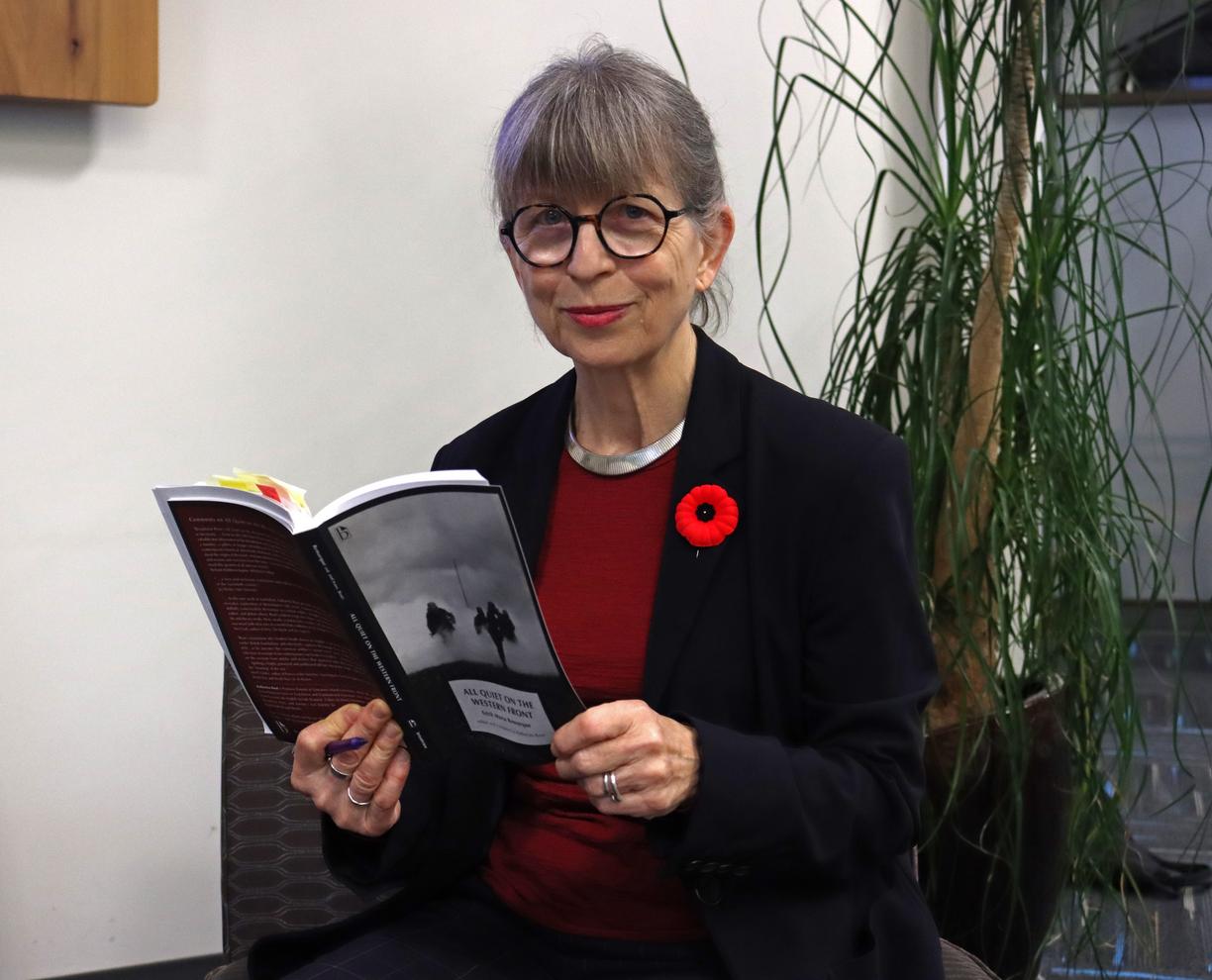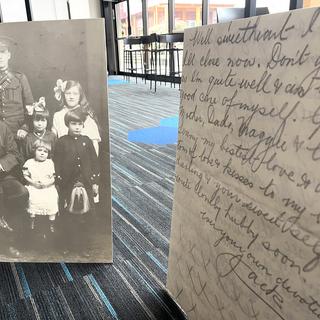Dr. Katharina Rout shares her thoughts about working on this classic novel
For the past couple of years, professional translator Dr. Katharina Rout has been immersed in a re-translation of Erich Maria Remarque’s All Quiet on the Western Front, a work she describes as the “arguably most widely read anti-war novel.”
The novel, originally published in 1929, is fictional but draws on Remarque’s experiences as a German solider in the First World War. It was banned in Germany by the Nazis as well as in some other European countries.
Broadview Press is celebrating the launch of this new translation on Thursday, November 7 from 7 to 8:30 pm at Black Rabbit Restaurant. Rout, a Vancouver Island University Professor Emerita with the English department, will speak about the experience of translating this classic work afresh, as well as historical context and relevance to the world today.
Why this book?
Erich Maria Remarque wrote his famous anti-war novel about the First World War during the interwar years when many of his contemporaries in Germany started to prepare for another war. On a polarized continent wounded by war, he refused to describe his characters’ opponents as enemies, never diminished their humanity and focused his readers’ attention on the human cost of war even for its survivors.
Today, Remarque is one of the most-translated authors in the world and a global icon. All Quiet on the Western Front continues to inspire writers, artists and scholars. It has been adapted for the stage and radio plays, opera, musical, hip-hop and heavy metal, ballet, film and television, the visual arts, and graphic novels; has a presence in social media, in blogs and on YouTube; and gets quoted in political debates and conflicts around the world. In 2023, Edward Berger’s movie adaptation won the Oscar for Best International Feature.
Making this classic antiwar novel more accessible to North American readers keeps Remarque’s message alive: Never again!
What do you hope your translation adds to the work?
The two previous English translations of the novel are into British English. A. W. Wheen’s 1929 translation was based on the 1928 serialized version of the novel, which was crucially changed for the 1929 book publication. In its numerous variants, Wheen’s translation bears traces of censorship not made visible to its readers. Brian Murdoch’s translation of 1993 is based on the 1929 book and far more accurate but not as easy to read for North American readers as one would wish.
My translation strives to provide a space for an uncensored All Quiet on the Western Front in North American culture. I use more direct and pared-down language in keeping with contemporary stylistic preferences. My aim is to give the narrator a voice whose impact is equivalent to the German source: an equivalence of effect. Remarque treasured his musical gift and followed his inner ear to make his novels and especially their dialogues sound good. This translation honours Remarque’s commitment to simplicity, accessibility and the qualities of spoken language.
The Broadview Press edition includes a wealth of contextual materials that illuminate the important role Remarque’s novel played in the political debates about the “meaning” of the First World War. They also show how its bestselling author became both the target of Nazi oppression and an internationally admired advocate for peace. Many of these materials have never been translated before.
You have said that you think this book is very timely for our current world situation.
We stare in horror at the daily news from battlefronts in Ukraine, the Middle East or Sudan. Ukrainian trenches remind us of the trenches of World War I, and soldiers fight and die or are physically and emotionally maimed for life much like the young men in Remarque’s novel. The Stockholm International Peace Research Institute records an increasing incidence of military conflicts both within and between countries, with the numbers of victims so high they threaten to numb us. Remarque’s novel can shake us out of our paralysis:
“A catastrophe claims five million victims, and it means nothing – the number is empty. But if I show you one single person in their entirety – their trust, their hopes and their difficulties – and if I then show you how that person dies, their story will forever be inscribed in your memory.”





